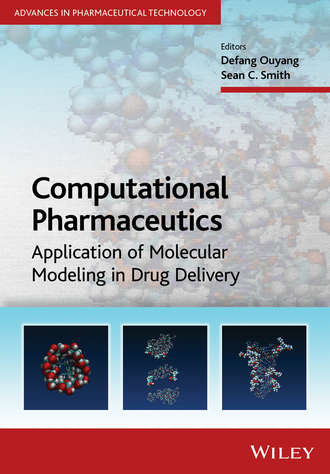
Полная версия
Computational Pharmaceutics. Application of Molecular Modeling in Drug Delivery
Molecular modeling techniques have been widely used in drug discovery fields for rational drug design and compound screening. Now these techniques are used to model or mimic the behavior of molecules, and help us study formulation at the molecular level. Computational pharmaceutics enables us to understand the mechanism of drug delivery, and to develop new drug delivery systems. The book discusses the modeling of different drug delivery systems, including cyclodextrins, solid dispersions, polymorphism prediction, dendrimer-based delivery systems, surfactant-based micelle, polymeric drug delivery systems, liposome, protein/peptide formulations, non-viral gene delivery systems, drug-protein binding, silica nanoparticles, carbon nanotube-based drug delivery systems, diamond nanoparticles and layered double hydroxides (LDHs) drug delivery systems. Although there are a number of existing books about rational drug design with molecular modeling techniques, these techniques still look mysterious and daunting for pharmaceutical scientists. This book fills the gap between pharmaceutics and molecular modeling, and presents a systematic and overall introduction to computational pharmaceutics. It covers all introductory, advanced and specialist levels. It provides a totally different perspective to pharmaceutical scientists, and will greatly facilitate the development of pharmaceutics. It also helps computational chemists to look for the important questions in the drug delivery field. This book is included in the Advances in Pharmaceutical Technology book series.

